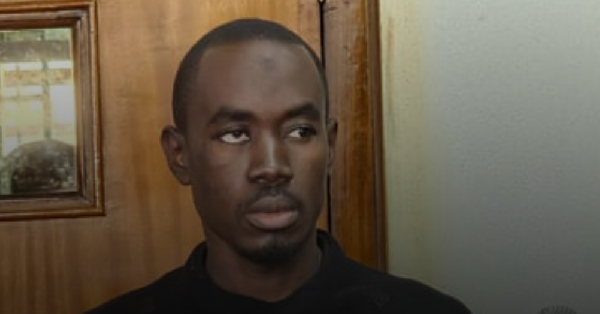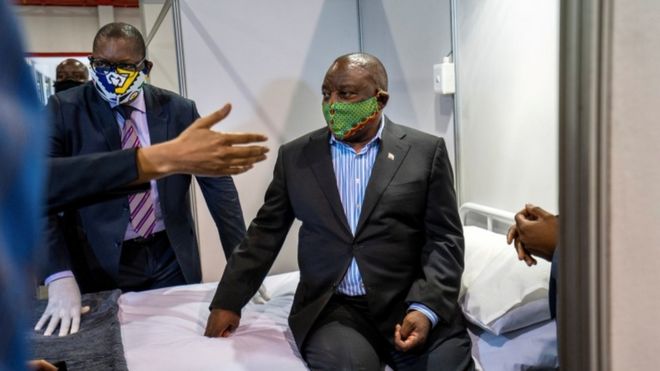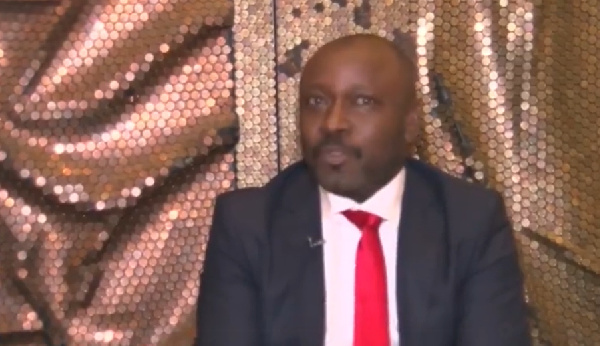US sanctions three notorious Ugandan terrorism financiers

Uganda has welcomed the sanctioning of three more financiers of the notorious Allied Democratic Forces (ADF) terrorist group, saying this will make it difficult for other entities to stake their money into financing terrorism.
Mr Henry Okello Oryem, the junior Foreign Affairs minister, said Uganda has been working with the US government to incapacitate ADF terrorists as well as their opposite number in the Lord’s Resistance Army (LRA).
“First of all, the government of Uganda works very closely with the US government in this fight against terrorism and negative groups in Eastern DRC. We work very closely and we collaborate very closely in these matters, including continued collaborating very closely with the issues of bringing the matter of LRA to a logical conclusion,” Minister Oryem said, adding, “So even now we still work with them very closely to try and identify where the conscious people are, find Kony personally and arrest him.”
The US Department of Treasury on Monday sanctioned three ADF financiers in the latest crackdown on the ISIS-affiliated terror group operating in the Democratic Republic of the Congo (DRC).
Targets
The latest sanctions target Hamidah Nabagala, a Ugandan female accused of financing terror activities in the DRC and across the Great Lakes region. Others are Abubakar Swalleh, who until his arrest in Lusaka operated between Uganda, DRC, South Africa, and Zambia and is the main masterminded in the recruitment and transportation of recruits from Uganda; and Zayd Gangat also based in South Africa, who the US government says has been behind a spate of robberies in South Africa to finance the terrorism activities of the ADF.
Nabagala, who is based in the DRC, is the biggest ISIS-affiliated female terror suspect sanctioned by the US government thus far. The US Department of Treasury says Nabagala serves as an intermediary for ISIS financial flows in central Africa.
According to the US, Nabagala was accused of funding the October 2021 Kampala bombing, which claimed one life while injuring scores more.
“In 2021, Ugandan authorities arrested an ISIS operative who had received funding from Nabagala. She also sought to smuggle her three children out of Uganda to send them to ISIS-affiliated camps in the DRC,” the statement said.
Others
Abubakar, a 31-year-old Ugandan male, was arrested last month in Lusaka, Zambia, and brought back to Kampala to face charges of terrorism. He was charged and remanded to Luzira prison by the Buganda Road Chief Magistrate’s court.
A statement from the US Department of Treasury says he was involved in the physical transfer of funds from South Africa to the DRC, and facilitated the movement of ISIS-affiliated individuals from Uganda to South Africa, and vice versa.
“Mohamed Ali Nkalubo, a DRC-based ISIS commander previously designated by the Department of State on December 8, 2023, relies on Swalleh to move funds and recruit members for ISIS’s DRC affiliate,” the statement said.
Before his arrest, Abubakar reportedly moved to South Africa under Nkalubo’s direction, where he had been involved in robberies and kidnap for ransom.
Zayd Gangat is a South Africa-based ISIS facilitator and trainer and according to the Treasury Department, ISIS leaders in South Africa have historically used robbery, extortion, and kidnap for ransom operations to generate funds for the group.
“Swalleh, Nabagala, and Gangat are being designated pursuant to E.O. 13224, as amended, for having materially assisted, sponsored, or provided financial, material, or technological support for, or goods or services to or in support of, ISIS, a person whose property and interest in property are blocked pursuant to E.O. 13224,” the statement said.
Handy partnership
Brigadier General Felix Kulayigye, the Defence Director of Public Information, yesterday told this publication that he was not aware of the sanctions and where the sanctioned terror financiers have been getting their money from.
“I am not aware of this and I don’t know where they have been getting their money from. Let me first find out from our sources,” he said.
Minister Oryem on his part said since Uganda launched operation Shuja against ADF, the US has assisted UPDF in various ways. He said the assistance helps the Ugandan army to identify, penetrate, and liquidate the ADF and rescue children and women who have been abducted.
“So it is most welcome, for us that is very positive,” Minister Oryem said, adding that despite misunderstandings between Uganda and the US on some diplomatic issues, including human rights and corruption, Washington remains Uganda’s biggest ally in the war against terrorism.
As well as applauding Washington’s support, Minister Oryem disclosed that Kampala will “continue seeking their assistance and we thank them very much for this current intervention.”
The sanctions
Mr. Brian E. Nelson, the US Under-Secretary of the Treasury for Terrorism and Financial Intelligence, on Thursday, said the US government took action against a network of the three individuals associated with the expanded activities of the Islamic State of Iraq and Syria on the African continent.
He added that these individuals serve as key financiers and trusted operatives, enabling the activities of ISIS and its leaders across Central, Eastern, and Southern Africa. He also said the group serves as a critical link between far-flung ISIS operations, including ISIS affiliates in the DRC, Mozambique, Somalia, and ISIS cells in South Africa. He said this allows ISIS leadership to leverage each affiliate’s capabilities to conduct terrorist attacks that undermine peace and security in the region.
“Today’s action underscores the crucial work of the Counter ISIS Finance Group and the importance of effective information sharing among Coalition countries to target ISIS’s facilitation networks,’ he said.
Mr. Nelson called for vigilance and said the US government worked with other stakeholders to disable the terror groups operations.
“Today’s designations are aimed at the threat ISIS poses to regional security and stability in Eastern, Central, and Southern Africa. The individuals sanctioned today are being designated pursuant to Executive Order (E.O.) 13224, as amended, which targets terrorist groups and their supporters,” he said.
The implications
The latest sanctions, according to the US government, mean that all property and interests in property of the individuals named, and of any entities that are owned, directly or indirectly, 50 percent or more by them, individually, or with other blocked persons, that are in the United States or the possession or control of U.S. persons must be blocked and reported to Office of Foreign Asset Control (OFAC).
OFAC’s regulations generally prohibit all dealings by U.S. persons or within the United States (including transactions transiting the United States) that involve any property or interests in the property of designated or blocked persons.
Source: monitor.co.ug





